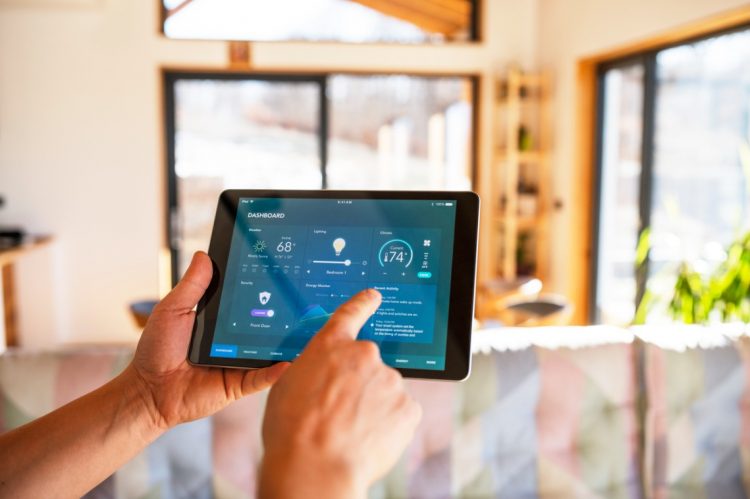The Harvard Joint Center for Housing Studies has been studying the effects of digitalization in housing via an ongoing research series. One affected area is the energy consumption of homes and management thereof, detailed in a recent report, “Empowering Up, Powering Down: The Evolution, Effects, and Efforts to Digitize Energy Controls and Digitalize Energy Information in US Homes.”
Written by Carlos Martín, the paper was first presented in March 2022 at the “Bringing Digitalization Home: How Can Technology Address Housing Challenges?” symposium. It is now available for public viewership.
The paper tracks the proliferation of smart devices, such as digital thermostats or light switches, in homes. These devices reflect the ongoing, but far from complete, move away from greenhouse gasses as the primary energy source for residential homes.
Sustainability isn’t just a moral imperative. It’s good business, too. In fact, a recent study from the National Association of REALTORS® found that consumers generally want energy-efficient homes, which smart devices can help provide. In a macro-sense, climate change means less inhabitable space, which means less real estate to sell.
However, the paper also notes concerns about smart devices and digitization, from their true effectiveness to potential privacy invasions.
As a real estate professional, being able to anticipate buyer concerns about these devices could serve you well, too.
Key findings
To explain why reducing energy consumption in homes is a priority, Martín cites the high energy consumption level of U.S. households: 23% of nationwide energy use when transmission costs are accounted for. Since the majority of this energy expenditure is fossil fuel-based, that means homes account for 20% of U.S. carbon emissions, equivalent to 100% of emissions from Brazil (the 7th most populous country).
The digitalization of homes and the introduction of smart devices is part of the larger move from oil to electricity as the primary power source of homes. Martín defines the following modes of classification for smart devices:
- Inside the home: support energy management within the home (programmable thermostats, smart appliances and lighting, etc.)
- Outside the home: energy management across the whole power grid (smart meters)
- Data sources: devices that generate energy (thermostats, appliances, plugs, switches, lighting)
- Data displays or controls: devices that manage energy (online portals, apps, energy displays in-home)
These distinctions demonstrate how energy management is as crucial as energy sources. Smart devices incorporate “smart meters,” which measure electricity usage and send the data to both the consumer and utility supplier. This results in a constant (and precise) reading of energy outputs and digital records thereof. Analog meters, on the other hand, usually provide readings on a month-to-month basis for billing purposes.
Allowing homeowners to more accurately modulate how much energy they’re expending, the ease of transmission associated with this type of date comes with an even bigger benefit. Reducing emissions requires coordination and synchronization of energy output. The ability to constantly track energy consumption across power grids is a step forward in that challenge.
However, this leads to another challenge that smart devices represent: privacy concerns. Since smart meters transmit their data to energy providers and utility companies, this gives those entities the potential to make “inferences” about the energy consumption of the monitored households. Moreover, since most energy providers are private, investor-owned entities, there is also the risk that they will use that collected data to make profits.
Martín cites a survey that points to utility providers as a hurdle to greater acceptance of smart devices. While 40% – 49% of households would be willing to adjust the timing and setting of their thermostats, dishwashers and lighting for better energy management, only 25% – 30% would be willing to allow their utility servicer to perform the adjustment.
There’s no easy answer to these privacy concerns. While state regulators permit homeowners to opt out of smart metering, this defeats the purpose of cleaner, more efficient energy management.
This is one reason that the actual adoption of smart devices/meters hasn’t reached transformation levels yet. Another obstacle is that, due to recent regulatory history, household energy management is a state/local issue more so than a federal one.
The report includes a map tracking diffusion of smart meter deployment across all 50 states as of 2019. The results were as follows:
- 50% – 100% level adoption by customers: Alabama, Alaska, Arizona, California, Delaware, Florida, Georgia, Idaho, Illinois, Indiana, Kansas, Maine, Maryland, Michigan, Mississippi, Nevada, North Carolina, Oklahoma, Oregon, Pennsylvania, South Carolina, South Dakota, Tennessee, Texas, Vermont and Wisconsin.
- 15% – 50% level adoption by customers: Arkansas, Colorado, Connecticut, Iowa, Kentucky, Louisiana, Minnesota, Missouri, Montana, Nebraska, New Hampshire, New York, North Dakota, Ohio, Utah, Virginia, Washington and Wyoming.
- 0% – 15% level adoption by customers: Hawaii, Massachusetts, New Jersey, New Mexico, Rhode Island and West Virginia.
The report also cites examples of incentives energy providers in individual states are offering to further the transition to smart devices:
- An Ohio energy provider provides a management system that not only tracks electricity/energy usage, but also offers suggestions of which systems to turn down.
- Utilities in North Carolina and Virginia are providing free smart thermostats, designed to “encourage their customers’ projected savings.”
Whatever these incentives, there are three universal enablers of digitalization in homes:
- Advanced metering: tracking energy usage with smart meters
- Demand response management: adjusting energy management based on received data
- Net metering: a unique billing system where homes that generate their own electricity (typically with solar power) receive a “credit” based on how much they generated in comparison to their expenditure of it.
Keep these in mind if/when your client says they want an energy-sustainable home.
Read the full report here.











